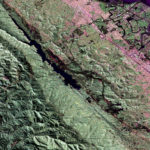The mortgage lender’s property insurance does not leave you in good hands.
No matter how much time it saves you.
Your lender is not a good neighbor when it comes to insurance.
When your home insurance lapses
Somehow my client let her homeowners insurance lapse. She wasn’t worried about it, she told me, because the mortgage lender had gotten insurance on her home.
She was content, she said, to let the lender take care of that complication in her life.
Only the complication wasn’t being “taken care of” because the lender’s property insurance didn’t protect my client or her interest in her home.
Lender protects only themselves
Normally, you pick out an insurance carrier to insure your home and to protect yourself against the risks that property owners have.
Your mortgage requires that you insure the property and name the lender as an additional insured. That way, if the house, which is part of the collateral for the loan, burns down, the lender gets all or part of the insurance proceeds to make up for the loss of the structure. You may pay for that insurance directly or through an escrow account collected with your mortgage payment.
Your mortgage also provides that if you don’t get insurance to protect the lender, they can get it for you, and you’ll have to pay for it. That’s force-placed insurance.
But here’s the catch: force-placed insurance protects only the lender up to the amount of its loan.
Your equity in the property is not covered, nor are you insured against personal injury claims related to the property.
Not to mention the fact that force-placed insurance is very expensive.
So, my client who thought she’d off-loaded the job of providing insurance, had no protection from the lender’s insurance. All she had was the bill for three times what she was paying before, for half the coverage.
Homeowners exposed to injury liability
Homeowner’s insurance usually protects far more than the house on the lot. It protects you from claims by visitors to your property for injuries they suffer on your property.
And other, quite unexpected stuff.
Early in my legal career, I found that my client’s homeowner’s policy covered the damages his son caused spinning wheelies in his dad’s car on the high school football field in the dark of night.
Our legal system assigns liability to property owners for injuries that occur on the property, often without regard to fault,. For that reason, I advise that people walking away from homes or investment property continue to pay for liability insurance even if they aren’t paying the mortgage and are indifferent if the property burns down.
Take insurance matters into your own hands and be genuinely protected.
More
Little known step that’s critical before listing house for sale
Your house needs an annual check up
How California homesteads work
Your home provides a poor retirement






